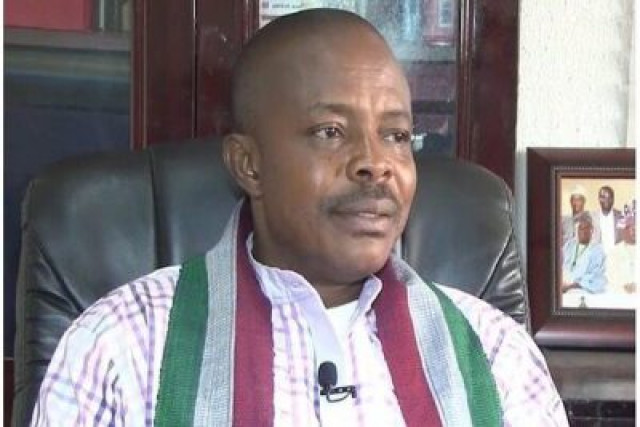The Nigeria Labour Congress (NLC) has urged the International Monetary Fund (IMF) and World Bank (WB) to halt their financial assistance to governments that lack accountability to their citizens.
The NLC President, Joe Ajaero, expressed this stance during a recent high-level meeting in Washington DC, USA, focused on "Progressive Taxation and Fiscal Consolidation."
Ajaero emphasized the union's representation of marginalized individuals who should benefit from taxation but are often negatively impacted by such systems in numerous countries.
He stated that progressive taxation and fiscal discipline are not merely economic concerns but are also moral obligations tied to social justice.
He criticized the global economic framework shaped by the IMF and WB, highlighting its tendency to exacerbate inequality instead of alleviating it. In many developing countries, including Nigeria, tax regulations are skewed, imposing heavy burdens on the impoverished while allowing affluent individuals and corporations to evade their fair tax responsibilities.
He asserted that this systemic shortcoming necessitates immediate remedial actions.
Ajaero pointed out that for years, the IMF and WB have advocated for austerity measures and structural adjustments that prioritize debt repayment over human development. These strategies have weakened public services, undermined labor rights, and increased poverty levels.
He questioned why these institutions continue to lend to irresponsible and authoritarian governments that do not serve their people effectively and suggested that this may be a calculated tactic to further entrench countries like Nigeria in cycles of debt and underdevelopment.
He further noted that the fiscal pressures resulting from debt obligations and IMF/WB requirements have forced developing nations to impose various taxes on workers and the less affluent, who lack the means to evade such taxes. In Nigeria, there are proposals to tax individuals earning as little as N800,000 per year (approximately $500), which he characterized as deeply regressive.
Ajaero contended that lending to governments that neglect their citizens' welfare should not be viewed as development but as exploitation, perpetuating corruption, widening inequality, and eroding democratic values. While ordinary workers and citizens suffer under such policies, the elite and their international partners continue to benefit.
He called on the IMF and WB to reconsider their strategies, moving away from blanket austerity measures and instead aiding developing nations in formulating progressive tax systems that safeguard the vulnerable. This involves ensuring that tax system creation and implementation includes the participation of critical national stakeholders, especially workers, who are the majority of taxpayers in these economies.
He asserted that the classification of a tax as regressive or progressive begins at the point of its conception. Excluding significant stakeholders from discussions means they are sidelined, and the proposed tax measures in Nigeria have failed to be inclusive due to the government's refusal to allow worker representation during the tax committee's formation.
Ajaero urged the IMF and WB to promote the inclusion of all essential stakeholders in every step, from designing tax systems to putting them into action, through fostering social dialogue. He emphasized that the focus of taxation should be on wealth, not on impoverished citizens, advocating for higher taxes on luxury goods, capital gains, and incomes of the ultra-rich.
He underscored the importance of tax justice as central to social justice and sustainable global development, asserting that IMF and WB must lead in creating a just world. He criticized the imposition of higher taxes on basic needs under the pretext of formalizing the informal economy and urged the institutions to enforce fair taxation from multinational corporations operating within their territories.
He proposed that tax revenues should be allocated to vital social services such as education, healthcare, and support for the most vulnerable populations. Fiscal discipline, he argued, must not infringe on the rights of the poor and should be grounded in equity and justice. The IMF and WB, he claimed, have a responsibility to ensure their policies do not increase inequality or encroach upon national sovereignty.
He concluded that efforts to reduce social inequalities should inform policy development, not merely facilitate social mobility. He advocated for support of the UN Convention on Tax initiated in late 2022 to address the taxation of digital entities' profits sourced in nations different from their physical bases, as well as to incorporate all countries in establishing global tax frameworks.
Ajaero called for a cessation of lending to governments that are unaccountable to their citizenry, as such funding only exacerbates governance crises and drives nations deeper into debt and underdevelopment. Instead, he urged the IMF and WB to prioritize transparency, responsibility, and the safeguarding of worker rights.
The path to sustainable progress, he concluded, lies not in oppressive debt cycles and regressive tax practices, but in empowering nations to develop equitable tax systems that benefit the majority rather than a select few. The time for change is now.




















